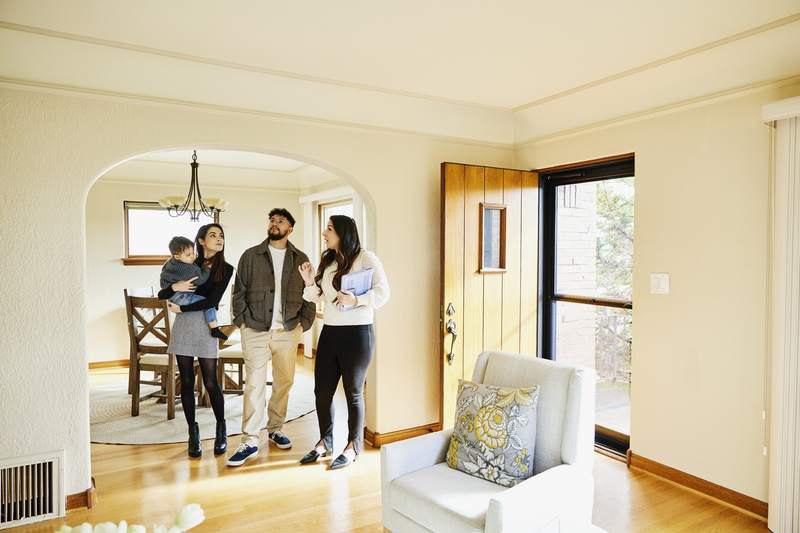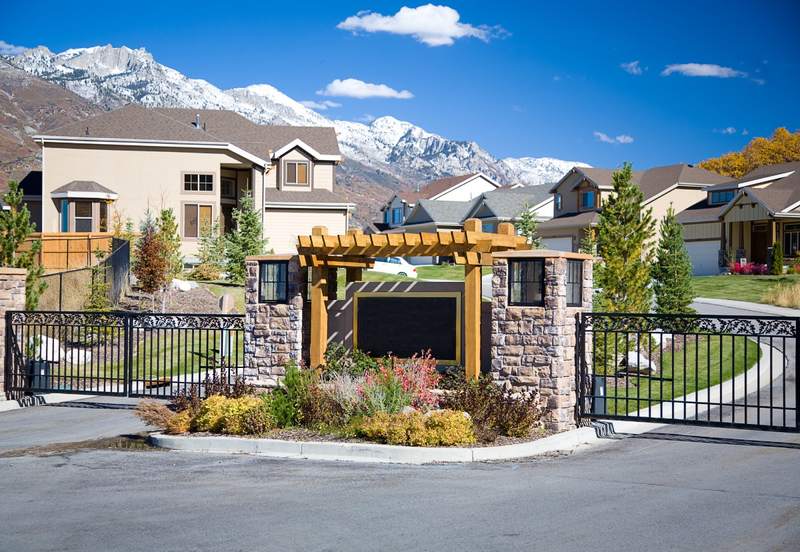
For generations, many Americans have used homeownership as a way to build wealth. However, buying a home is also a serious financial commitment with certain drawbacks.
Here’s a quick breakdown of the pros and cons of buying and owning a house:
The Pros and Cons of Buying a House
| Pros of Buying | Cons of Buying |
| Homeowners build equity | Higher upfront costs |
| Significant tax benefits | Responsible for maintenance and repairs |
| A home likely will increase in value | Property taxes and homeowners association fees, if applicable |
| More-stable housing costs in the long term | Time spent on property upkeep |
| You can do whatever you wish with the home | Less flexibility to move |
| Opportunity to improve your credit | Risk of foreclosure |
Pros of Buying a Home
What are the benefits of buying a house? First of all, it’s a major accomplishment. Saving for a down payment (and closing costs) is no easy task. When you get past that roadblock, the path of homeownership is lined with financial perks.
Homeowners build equity
One of the greatest advantages of buying a home is getting to build equity, which is the difference between how much your property is worth minus the amount you still owe on it. As you pay off your mortgage, the equity you have in your home will increase. Your equity can also grow if the value of your home goes up.
Why is equity so valuable? Homeowners can benefit from having equity when they sell their home, or if they want to get a cash-out refinance, home equity loan, or home equity line of credit.
Significant tax benefits
The savings for homeowners at tax time can add up. If you itemize your deductions, then you may be able to deduct what you’ve paid in mortgage interest and property taxes. Other potential tax breaks could involve your mortgage insurance premiums, any discount points you purchased, or certain home improvements.
A home likely will increase in value
Home prices tend to increase over time, which means your investment likely will be worth more down the line — as long as you keep the property in good condition. If the price does appreciate, then you’ll have more equity in your home to take advantage of when the time comes to sell, or if you need cash to achieve goals like consolidating high-interest debts.
More-stable housing costs in the long term
A major perk of having a fixed-rate mortgage is that your monthly payments are relatively stable. This lets you plan for the long term, especially if you have a 30-year loan term. As a homeowner, you get to avoid the potential rent increases that tenants face when their leases are up, which happens every year for many people.
You can do whatever you wish with the home
When you own your home, you’re the boss. Whether you want to paint the interior walls a wild color or renovate to move the kitchen counter 6 inches to the right, you don’t need permission from anyone else. Homeowners have the freedom to make changes that suit their individual taste, and to create their dream home.
Opportunity to improve your credit
Making your mortgage payments on time and in full each month can help raise your credit score. After all, your debt payment history is a major factor that influences your score. Having a higher credit score generally makes it cheaper to borrow money, so improving your credit could help you refinance to a lower interest rate down the line, if qualified.
Cons of Buying a Home
It’s also important for you to be aware of all the downsides of homeownership. Here are some of the disadvantages of buying a home.
Higher upfront costs
Other than saving for a down payment, homebuyers need to be prepared to pay closing costs. These are fees associated with taking out a mortgage and buying a home, such as the loan origination fee and home appraisal fee. It’s important to not underestimate closing costs, as they generally amount to 2% to 5% of the purchase price of the home.
In comparison, one of the benefits of renting a home is that tenants typically only need to cover the application fee, security deposit, and move-in fee.
Responsible for maintenance and repairs
There’s a downside to the autonomy that homeowners have: When something in the home breaks, it’s their problem to fix. Major repairs can be rather costly, and you might be caught off guard by the bill.
You’ll hear about different rules of thumb when it comes to budgeting for home maintenance, such as:
- Setting aside 1% of the purchase price of your home each year.
- Earmarking about $1 for each square foot of living space annually.
- Budgeting 10% of your mortgage, property taxes, and insurance costs every month.
Whatever rule you choose to follow, it’s important to be prepared for the costs of home maintenance.
Property taxes and homeowners association fees
Other costs associated with homeownership include property taxes and HOA fees, if you live in an area governed by a homeowners association. Your property tax bill is determined by the value of your home and the local tax rate, while your HOA fees depend on the amenities and services offered in your community.
Time spent on property upkeep
Somebody needs to maintain the landscaping, clean the gutters, and take care of all the miscellaneous tasks involved in property upkeep. If you aren’t willing to pay other people to do these tasks, then you’ll have to put in the work. That’s time you could be spending with family and friends, doing other things you enjoy, or on anything else.
Less flexibility to move
Renters are free to move once their lease is up. But when you own a home, you’re stuck with it until you can find a suitable tenant or sell — which may take a while. This could become a problem if you suddenly need to relocate to take a new job or care for a sick family member, or for another reason. You’ll also be at the mercy of current housing market conditions.
Risk of foreclosure
A mortgage is a long-term financial commitment. Typically, you sign up to make monthly payments for 30 or 15 years. If you become unable to pay your mortgage for whatever reason — you could lose your job or need to cover unexpected medical bills — the loan could go into default. In the worst-case scenario, you may lose your home to foreclosure and damage your credit for years.











